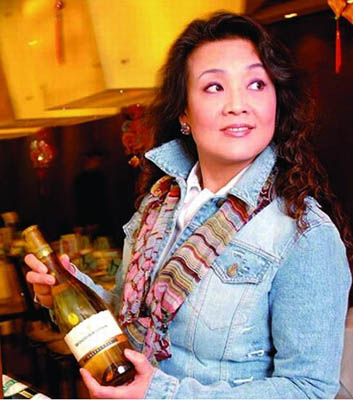RELAXING ATMOSPHERE
As a Chinese saying goes, "The gun aims at the leading sparrow". Inevitably, Guo's business ran into "a political trouble", a tag feared by most Chinese in the early 1980s. Guo remembers that "people gossiped behind my back and depicted me as 'a daring vanguard of capitalism'."
Since the new China was proclaimed in 1949, the country had followed steadfastly an economic path of state or public ownership and ran firmly against the idea of private property.
A national paper even published an editorial criticizing Yuebin. "It is inappropriate to operate private business in a socialist country like China," it said, towing an inflexible line.
Guo says, "I didn't think too much of the discussions or reports. I'm not the type of 'capitalist' who has an insatiable intention to expand business. I care about doing my work with sincerity and satisfying the appetite of my customers. It's that simple."
The turning point came when the sons of several state politicians showed up for a dinner. One of them was Deng Pufang, the eldest son of top leader Deng Xiaoping, who was widely regarded as the chief designer of China's reform and opening up initiatives.
"They talked with warmth: 'Aunt, we came to support you and your restaurant'," recalls Guo's wife.
The following Spring Festival, Yao Yilin and Chen Muhua, then vice premiers in charge of the economy and trade, paid a personal visit. "They encouraged us to proceed with boldness, which set our minds at ease," Guo says.
But the initial boldness has never gone beyond the lane and courtyard. Through the past 28 years, the couple has stuck to their original cuisine, represented by spring-rolls and braised pork leg.
Neither did their management style change. Yuebin and the later acquired Yuexian (Pleasing Immortals) were redecorated only once in the mid-1990s. Today, about 14 employees take care Yuebin and Yuexian, with 21 tables, and covering an area of 100 square meters.
ENVISIONING FUTURE
In comparison, the brand Qiaojiangnan, or South Beauty, headed by Zhang Lan aimed high from the very beginning.
 |
|
Zhang Lan, owner of South Beauty
|
"What we promote is not meals, but a culture," says Zhang, who kicked off her business in Beijing with 20,000 US dollars she made in Canada in the early 1990s.
Like Guo and Liu, Zhang made an instant success by opening two small restaurants in the mid-1990s, but she maintained ambitions.
Although Chinese food is popular overseas, it enjoys no position. So, Zhang was determined " to make a top brand. " She shifted the strategy to high-end customers by designing the brand combining Chinese cuisine with western style.
Zhang is proud to see her South Beauty, inspired by the refined southern Chinese culture, is reflected by the elegant decorations, luxurious layout and good service at the restaurants.
The backdrop was also different from Guo's era, as the 1990s saw China conforming to international norms after its introduction of a market-oriented economic mode.
Since the first restaurant was opened in 2000, the company has established 31 owned or franchised operations in the most commercially valuable locations in major cities such as Beijing, Shanghai and Chengdu. In 2008, Qiaojiangnan will open its first overseas restaurants in the U.S. and Japan, the first of its kind for the Chinese catering industry.
In November 2007, Qiaojiangnan was officially designated a "China Well-known Trademark", making the brand the only Chinese catering service that enjoys international legal protection.
During the Beijing Olympic Games, Zhang and her team also provided dining services for 31 Olympic venues.
"Some foreigners think Chinese food is served in a local but backward way. They dine in a Chinese restaurant out of curiosity rather than for the food, but we are adding service and philosophy to the experience," says Wang Xiaofei, the son of Zhang Lan and executive director of Qiaojiangnan.
Later, Qiaojiangnan aimed at the rising middle-class and young people, who were more or less influenced by the influx of Western culture. Named after Zhang Lan herself, the Lan Club was opened in 2006. Covering almost 7,000 square meters, the club boasts spectacular lounges, bars, a banquet hall and French bistro.
"What I want to do is accommodate people in a modern place to enjoy top-grade Chinese cuisine," says the 27-year-old Wang, who obtained his degree of hospitality management in Paris before joining his mother's success story.
Zhang and Wang focus on delivering a Chinese restaurant brand on a par with distinguished international peers.
"Where there is Louis Vuitton, there should be Qiaojiangnan," Zhang says with confidence.
Accompanying the expansion of Qiaojiangnan is accumulation of Zhang's personal wealth. With an asset of 1.79 billion RMB, Zhang was recognized in 2007 one of the four hundred wealthiest Chinese by Forbes.
As for the Yuebin owner Guo Peiji however, catering to the grassroots also means pleasure. "Cooking is not only a technique, but also a form of art. To attract customers, you must serve the quality dishes, right?" He smiles, pointing to the banner outside the restaurant that reads "China's first self-employed business."
(Xinhua News Agency October 1, 2008)